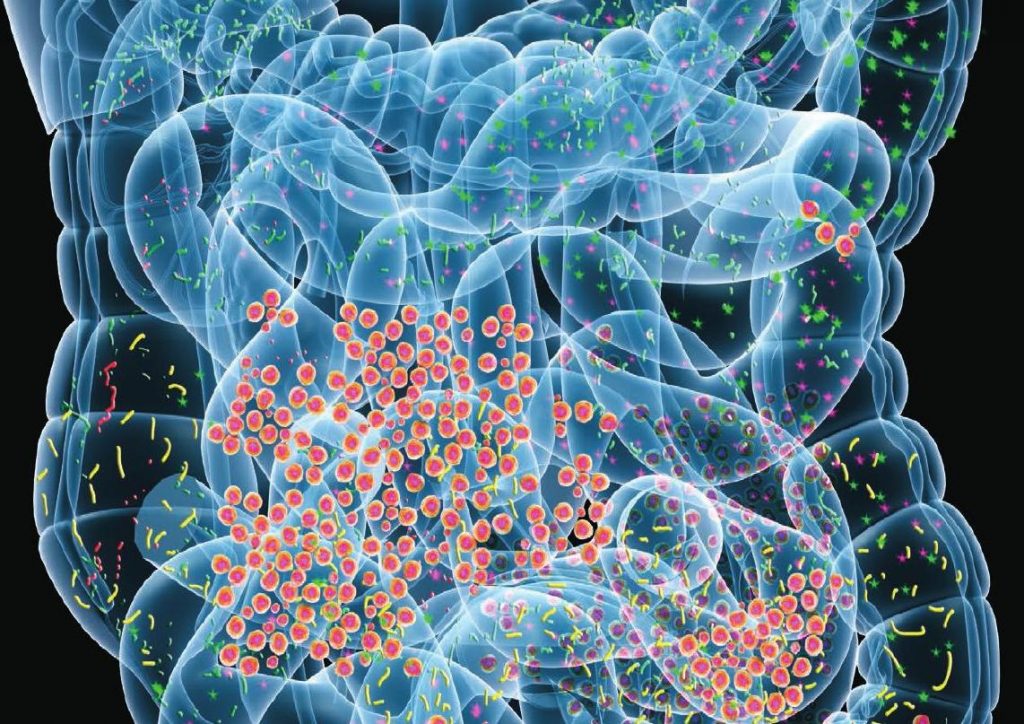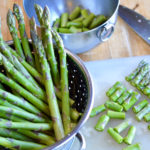Feed Your Good Gut Bacteria with Prebiotics
Recipe Key
 In our microbiome (gut) we have trillions of bacteria cells. There are good bacteria and bad bacteria. It’s always going to be like that, you’re never going to get rid of all the bad and thats great. Our goal is to have more of the good guys and less of the bad guys. The health of our gut is one of the biggest things that impacts our health and happiness.
In our microbiome (gut) we have trillions of bacteria cells. There are good bacteria and bad bacteria. It’s always going to be like that, you’re never going to get rid of all the bad and thats great. Our goal is to have more of the good guys and less of the bad guys. The health of our gut is one of the biggest things that impacts our health and happiness.
We can help the good bugs win out over the bad bugs by being selective of what we eat and how we feel. Eating too much sugar or allowing stress to influence our life is not good for our good gut bacteria. Eating food that supports the good guys and finding a way to enjoy our wonderful life supports our internal garden (our gut). Yes, your good gut bacteria are listening to your thoughts.
By now you’ve probably heard about the health benefits of probiotics. They can help improve your energy, mood, digestion, elimination, immune system, and even your appearance.
Probiotic foods like sauerkraut, kimchi, tempeh, kefir, kombucha or miso support the good bacteria you already have.
Many of us also take probiotic supplements to get additional good gut bacteria growing in our microbiome. These are my favorite brands: Gut Pro, Pure Probiotic G.I. Floral Restore, Dr Ohhira’s Professional Formula.
Probiotic foods and supplements work by creating an environment where the good guys can gain strength and numbers. When we have more of the good guys the bad guys don’t have enough room to live and they die off. Having lots of good gut bacteria keeps your metabolism humming, your immune system healthy, and your mind happy and sharp.
But there is another factor, feeding the good bacteria. Like any other living organism the good bacteria need to be nourished and supported.. This is where prebiotics come in.
What Are Prebiotics
Prebiotics are a type of fiber that passes through the upper part of the gastrointestinal tract and remains undigested.
As these prebiotics travel through the stomach without being broken down they become food for the beneficial bacteria (probiotics) that live in your gut.
In addition to stimulating good bacteria growth in the large intestine and colon, prebiotics increase fermentation and the production of short-chain fatty acids like butyrate. Butyrate is a type of fatty acid that helps your gut function optimally. It lowers the pH of our colon making it uncomfortable for bad bacteria and pathogens to survive.
Prebiotics and probiotics work together to maintain the balance and diversity of intestinal bacteria, especially increasing the presence of “good bacteria” called lactobacilli and bifidobacteria.
Eating probiotic food is essential for good gut health and when you add prebiotics to “feed” the probiotics you will increase their numbers and strength, increasing their benefits. The results will be better health and wellbeing.
Benefits of Prebiotics
- Improve digestion
- Better elimination
- Lower your stress response
- Help balance your hormones
- Help with weight management
- Lower inflammation
- Enhance the absorption of minerals from food for better bone health
Best Prebiotic Foods & How To Use Them
- Raw Jerusalem Artichokes – Shred and mix into your salad.
- Raw Garlic – Add to salad dressings, salsa, pesto, hummus, zucchini or beet hummus.
- Raw Dandelion Greens – chop finely and add to salads beans or grains.
- Green Bananas – Add to smoothies
- Raw or Cooked Onions – Add to vegetable dishes, soups, burgers, chicken dishes or grilled on the BBQ.
- Raw Jicama – cut into sticks and use as crudité. Slice and add to salad.
- Raw Asparagus – shave and make a Raw Asparagus Salad.
I hope this article inspires to add more prebiotics into your diet. You’ll have more energy and feel happier since the good bacteria will be thriving. You’ll be digesting your food better and getting more nutrients.
Start slowly as a sometimes people experience a little gas when they add in more prebiotics. These symptoms are the result of rearrangements in your bowel bacteria. For most people, these side effects are short lived.
As always, I’d love to hear back from you. What resonated most with you that I shared today?




